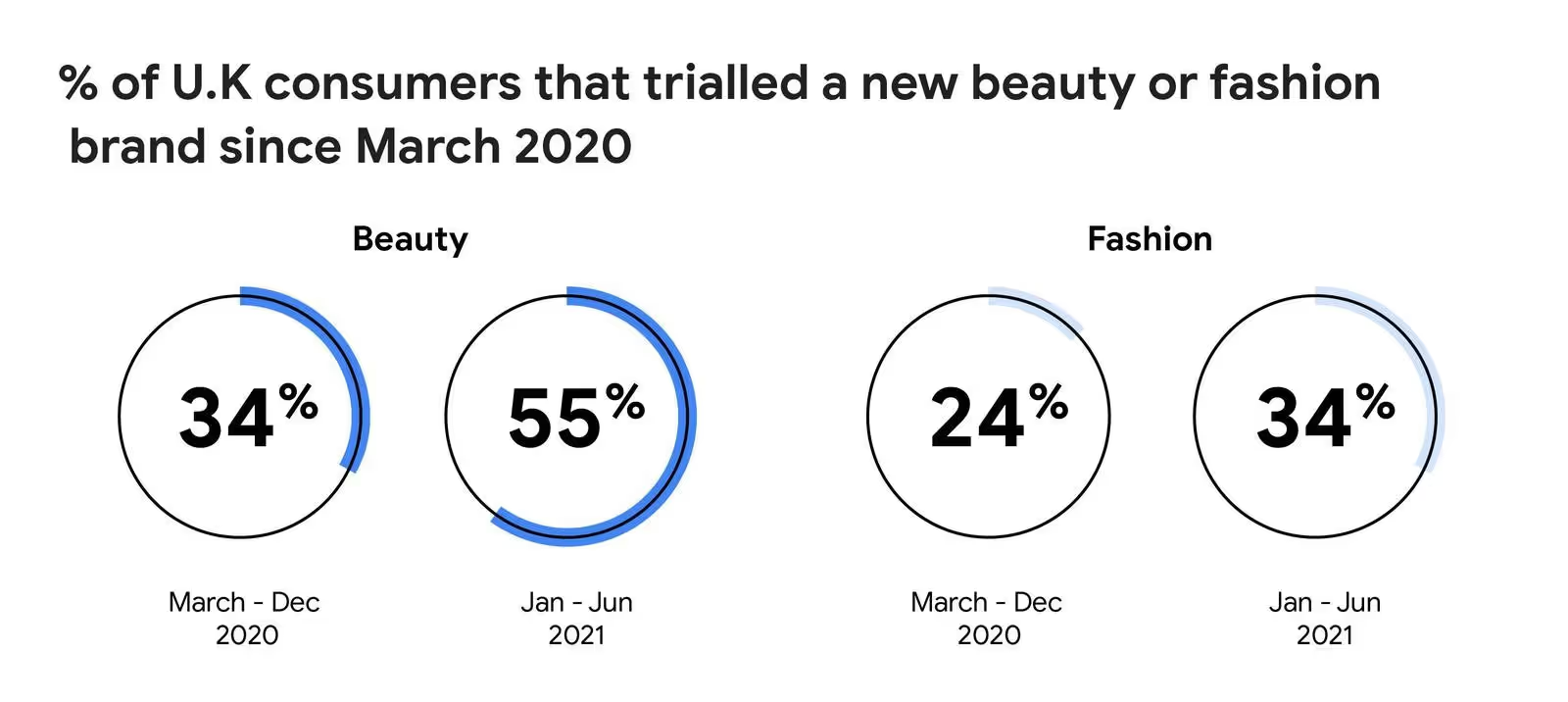It’s no secret that the fashion and beauty industries are two of the fastest-changing industries in the U.K. From big-name buyouts to surging sales of “going out” clothes, 2021 saw some major shifts in fashion and beauty consumer behaviours.
Google recently conducted a survey to analyse the behaviours of 7,000 shoppers across the U.K. in order to better understand these changes at a consumer level. They identified three sustained shifts that are currently defining the fashion and beauty industries. We’re taking a closer look at this data to identify how these changes in consumer behaviours can be turned into opportunities for your brand…
The online shopping experience is better
Before the pandemic, only 31% of beauty consumers and 29% of fashion consumers said they shop mostly or entirely online. According to Google’s new survey, those figures have risen to 49% and 57%, respectively. These figures are only slightly down from an all-time peak during last year’s lockdowns, suggesting that online shopping will remain dominant in 2022.
The data reveals some interesting patterns and differences emerging across age groups. While younger fashion and beauty shoppers are more likely to buy online in general, Generation Z are less inclined to say they shop mostly or always online than millennials. This may be because this generation of digital natives have higher expectations of both the online and offline shopping experiences.
Despite this, it is clear that the online shopping experience is meeting customer expectations. There are many shopping experiences that fashion and beauty consumers rated as being better online, such as “customer reviews” and “paying for products”. 34% of beauty consumers also said that comparing products is now better online than in store.
These insights indicate that creating a seamless journey for customers as they move between online and offline shopping experiences is essential. Brands that make this journey as easy as possible for consumers will be best positioned to capture demand.
The window shopping experience has moved online
Google’s survey also concluded that the return to shopping in store has not impacted online demand, with internet sales still firmly above those of pre-pandemic levels.
The data indicates that search interest for generic terms continue to grow faster than branded searches. This suggests that shoppers are more likely to go online to research what they want to buy than to quickly purchase a specific product.
Having a strong visual presence online is key to meeting consumer expectations here. Think with Google suggest not only building an organic presence on Google Images, but also taking advantage of new automated ad formats. This will give your brand the potential to reach and connect with valuable shoppers on Search and across all Google platforms.
Shoppers are open to trying new brands
As people spent more time at home and online, they were increasingly open to trialling new brands. Google’s survey results suggest that this trend has continued, despite the fact that stores have reopened. Over 50% of beauty consumers tried out a new brand between January and June 2021, compared with 34% in March to December 2020.

This tells us that shoppers are not only spending more time online in the inspiration phase of the shopping journey, but this is translating into the discovery and trial of new brands. As Think with Google put it, “Consumers now have more access to brands and retailers of any size from any location — and they are ready and willing to buy from them.”
Shoppers demonstrating a reduction in brand loyalty presents a huge opportunity for your brand. You should consider bidding on non-branded search terms to help connect with consumers in moments of discovery and deliberation. Automated ad formats using first-party data are key to capturing demand and driving profitable growth in the long term.
Not sure where to start with optimising your marketing campaigns to account for these changing consumer behaviours? Get in touch with dmt to find out about our PPC services, as well as what we can offer your brand in terms of paid social, email marketing, website development, and more.
















.svg)